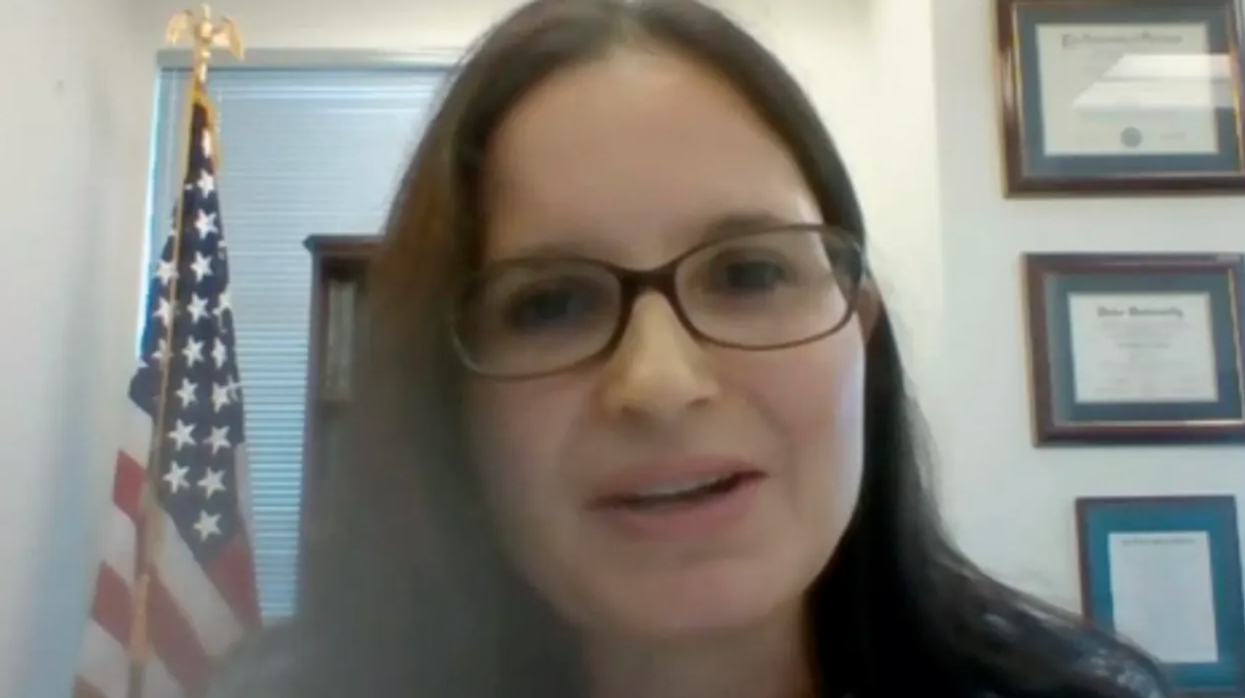Okay, it’s a complicated case, but this is getting ridiculous. I read the five-page order by Judge Aileen Cannon delaying Donald Trump’s classified documents case, so you don’t have to. You may not be able to remember back far enough to recall what this criminal prosecution is about, so here’s a brief summary.
Donald Trump literally had a Hertz rental truck pulled up next to the White House on January 20, 2021 so he could have his aides load dozens of boxes of documents he was taking with him to Mar-a-Lago in violation of the Presidential Records Act, which makes all records and documents produced during a president’s time in office the property of the government.
When later that year, the National Archives contacted Trump and demanded the return of the documents, he stalled, making all sorts of claims that the documents were his private property. The National Archives had to threaten to go to the Department of Justice for Trump to turn over 15 boxes of presidential records in January of 2022. In the 15 boxes, the National Archives found a trove of top-secret documents, and going through them, determined that it was likely that more classified documents were missing and demanded those, too.
Trump stalled again, finally agreeing to turn over some classified documents to lawyers for the DOJ in June of 2022. But before the DOJ lawyers arrived at Mar-a-Lago, Trump had his “body man” aide, Walt Nauta, move boxes of classified documents all around the Palm Beach property so (1) his own lawyer couldn’t find them when he did a “due diligence” search, and (2) the DOJ couldn’t find them when they showed up in June to collect the few documents Trump was turning over.
The DOJ analyzed the top-secret documents in the stash Trump turned over, and they interviewed witnesses from Mar-a-Lago, and determined that there were likely more documents stored there. They got a warrant and searched the place on August 8, and discovered more than 100 additional top-secret documents, some of them regarding secrets about the nation’s nuclear weapons stockpile.
Special Counsel Jack Smith was appointed to investigate Trump, and in the summer of 2023, Trump was indicted on 40 felony charges of stealing and mishandling government documents, including national security information.
The case was assigned to Judge Cannon, and she started stalling, issuing several bogus rulings on motions by the defense that were overturned on appeal to the 11th Circuit Court of Appeals in Atlanta. Then she continued to stall, as Trump’s lawyers filed one motion after another to delay the case.
Now here we are in the spring of 2024, more than four years after the National Archives demanded the return of the documents Trump stole, and Judge Cannon, with legal shovel in hand, has dug yet another trench in the warfare that she and Trump’s lawyers have been waging against Special Counsel Smith. They’re trying to wait out the campaign season, so Trump doesn’t go to trial before the election and get convicted, because they know the evidence is against them. He did take the top-secret documents. He did store them in a ballroom and bathroom and inside his own office at Mar-a-Lago. He did move some of them to his golf club in New Jersey. They’ve got the documents, they’ve got video taped evidence of the movement of the boxes within Mar-a-Lago, they’ve got testimony by Mar-a-Lago employees that they were acting on Trump’s orders.
They’ve got him.
But they’ve also got Judge “I’m just a little ‘ole MAGA girl from Florida” Cannon, and she issued an order today that’s a doozy. She is going to hold a hearing on every single motion Trump has filed right up to and including a request to go to the bathroom. Here are some of the hearings Cannon says must take place before she can even schedule a trial date:
Resolution of Pending Seal Requests May 20
Non-Evidentiary Hearing on Defendant Nauta’s Motion to Dismiss for Selective and Vindictive Prosecution May 22
Non-Evidentiary Hearing on Defendants’ Motion to Dismiss Indictment for Insufficient Pleading May 22
Discovery Status Reports (Special Counsel; Consolidated Defense) May 31, 2024
Defendants’ Rule 16 Expert Disclosures June 10
CIPA § 5 Notice as to All Defendants June 17
Non-Evidentiary Hearing on Motion to Dismiss Indictment Based on Unlawful Appointment and Funding of Special Counsel June 21
Partial Evidentiary Hearing on Defendants’ Consolidated Motions to Compel Discovery and to Define Scope of Prosecution Team June 24-26
Special Counsel’s Supplemental Expert Disclosures (if any) July 9
Special Counsel’s CIPA § 6(a) Defense Reciprocal Discovery July 10
Defendants’ Combined Speedy Trial Report July 19
Status Conference July 22
Supplemental CIPA § 4 Hearing (Sealed/Ex Parte) July 22
Now listen to her: “The Court also determines that finalization of a trial date at this juncture—before resolution of the myriad and interconnected pre-trial and CIPA issues remaining and forthcoming—would be imprudent and inconsistent with the Court’s duty to fully and fairly consider the various pending pre-trial motions before the Court…Finally, the Court has evaluated the statutory factors set forth in the Speedy Trial Act, 18 U.S.C. § 3161(h)(7)(B), including the public’s interest in the efficient administration of justice. Upon such review, the Court finds that the ends of justice served by this continuance, through the last deadline specified in this Order, July 22, 2024, outweigh the best interest of the public and Defendants in a speedy trial.”
Got that? Judge “I had to use spellcheck on the word ‘speedy’” Cannon has allowed Trump and Nauta and any wino wandering in off the street in Fort Pierce, Florida, to file any motion they wanted for more than a year, and now she has determined that Donald Trump won’t go on trial until a fucking rooster crows somewhere on an icy peninsula in Outer Mongolia because…uh…let me check my first year law school notes here…“the ends of justice” command it so.
I’ve got two words for you: Mitch McConnell. He’s the right-wing double-dealing backstabber who put two justices on the Supreme Court by violating rules he, himself, had set, and he’s the Federalist Society sock puppet who put AI bots like Aileen Cannon on the federal bench so she could look after the interests of the Republican Party and any flaming asshole they decided to run for president, right up to and including Donald “Excuse me while I expel a fart and pee in my diaper” Trump.
Benjamin Franklin said we’ve got a Republic if we can keep it. This isn’t what Franklin had in mind. This is throwing everything generations of Americans have fought and lost their lives to defend out with the trash.
Lucian K. Truscott IV, a graduate of West Point, has had a 50-year career as a journalist, novelist, and screenwriter. He has covered Watergate, the Stonewall riots, and wars in Lebanon, Iraq, and Afghanistan. He is also the author of five bestselling novels. You can subscribe to his daily columns at luciantruscott.substack.com and follow him on Twitter @LucianKTruscott and on Facebook at Lucian K. Truscott IV.
Please consider subscribing to Lucian Truscott Newsletter, from which this is reprinted with permission.











